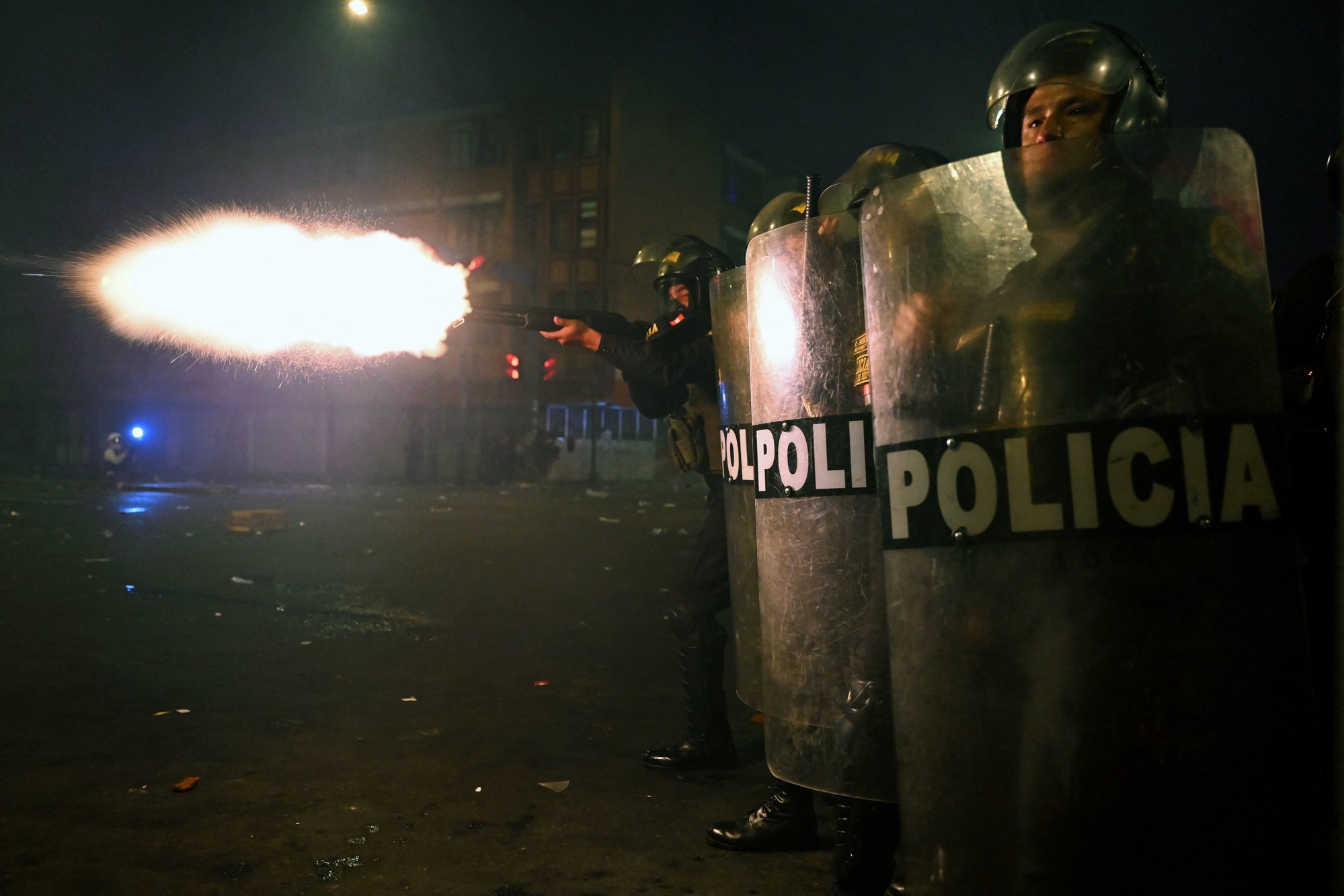Amnesty International is calling on the Canadian government to suspend arms exports to Peru in light of the Peruvian state’s lethal crackdown on peaceful protesters that started in December 2022.
Violent repression by Peru’s police and military forces of widespread, ongoing protests following the arrest and replacement of former president Pedro Castillo has reportedly killed at least 49 people and injured more than a thousand more. Amnesty International has called the repression “systemically racist” because it has disproportionately targeted Indigenous people, who have historically suffered discrimination, unequal access to political participation and the denial of their human rights.
- Related: Senior officials in Peru should be investigated over lethal repression of widespread protests
- Related: 100 days later, racist repression and slow investigations continue in Peru
- Take action: Tell Peru to stop using excessive force against protesters
In meetings with Canadian officials in Ottawa this week, Marina Navarro, Executive Director of Amnesty International Peru, will stress the urgency of halting arms exports to her country. “The state’s callous disregard for peoples’ lives and rights should sound the alarm for any country that has sold or plans to sell arms to Peru,” she said. “Unless it suspends arms exports to Peru immediately, Canada risks enabling further deadly, racist attacks on protesters and their rights to freedom of speech and assembly.”
“Continuing to sell arms to Peru raises concerns about Canada’s compliance with its domestic and international human rights obligations,” Navarro noted. Under the Arms Trade Treaty, of which Canada is a signatory, the government must not authorize arms exports if they could be used to commit or facilitate a serious violation of international human rights law and such risks cannot be mitigated.
Canada’s arms exports to Peru include armoured vehicles, guns and ‘chemical agents’
According to data published by the Canadian government, Canada exported CAD$81.4 million of military goods and technology to Peru between 2014 and 2021. (The 2022 data is due to be published by the end of May.) By far the largest expense was the $67-million sale of 32 LAV II armoured vehicles, an order that was fulfilled in 2016.
Amnesty International has not independently confirmed whether arms purchased from Canada have been deployed against protesters in Peru. However, in five out of the eight years reflected in the data, Canada sent Peru guns or gun parts, including 25 heavy machine guns in 2016. In addition, in 2018, 2019 and 2020, Canada’s arms sales to Peru included “chemical agents, ‘biological agents,’ ‘riot control agents,’ radioactive materials, related equipment, components [or] materials.”
Evidence collected through Amnesty International’s Specialized Crisis Response Investigation in early 2023 led to the determination that Peru’s military and National Police unlawfully and sometimes indiscriminately used lethal and less-lethal force against demonstrators, especially against Indigenous people and campesinos (rural farm workers). Amnesty International’s initial report documented the deaths of 12 people from the use of firearms during the crackdown. The team also found evidence suggesting the heavy use of potentially lethal munitions, as well as tear gas, which can also be lethal when used improperly or when fired from a launcher directly at the body. The report documented the death of one person – who was hit in the head with a tear gas cannister – and dozens of injuries caused by less-lethal weapons.
The team’s final report, Lethal racism: Extrajudicial executions and unlawful use of force by Peru’s security forces, is now available.
‘Not too late to do the right thing’
In response, Amnesty International Canada’s French- and English-speaking sections sent a letter dated 30 March 2023 to Canadian Foreign Affairs Minister Mélanie Joly raising the human rights implications of continuing arms exports to Peru.
“The gravity of our initial findings and the reality of ongoing repression by state security forces against the civilian population in Peru, together with Canada’s obligations under the Arms Trade Treaty, compel a suspension of any new permits for export of military goods to Peru until Canada can guarantee that these will not be used to commit human rights violations,” wrote Ketty Nivyabandi, Secretary General of Amnesty International Canadian Section (English-Speaking), and France-Isabelle Langlois, Director General of Amnesty International Canada Francophone, in the letter.
As of Wednesday, the Government of Canada had not responded to Amnesty International’s call to halt arms exports to Peru. “The Canadian government’s recent silence on arms sales to Peru is deafening, but it is not too late to do the right thing,” said Navarro, who will meet with Global Affairs Canada officials on Thursday. “This is the single most important step the Canadian government can take to protect Peruvians whose lives and rights are in danger.”





















